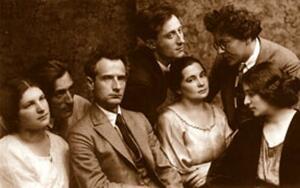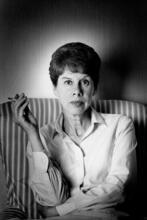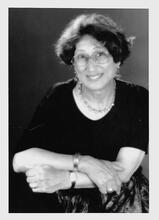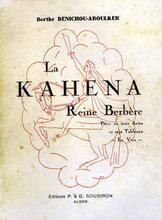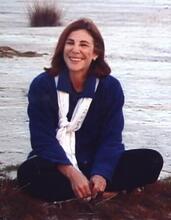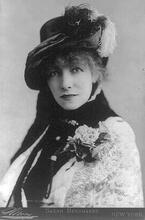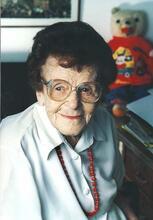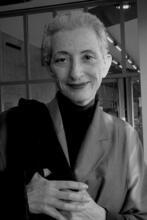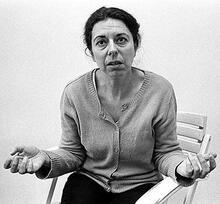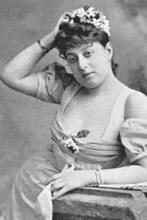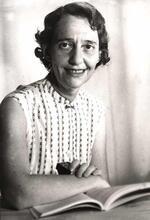Esther Shumiatcher-Hirschbein
Esther Shumiatcher-Hirschbein was born in Belarus in 1899 and emigrated to Calgary, Canada, with her family in 1911. After her high school graduation, Shumiatcher worked in meat-packing plants and as a waitress. In 1918, she married Peretz Hirschbein, a leading playwright in New York’s Yiddish theater, who encouraged her to write. Her first Yiddish writings were children’s plays addressing issues of death and loss, inspired by orphans of pogroms she had encountered while traveling in Eastern Europe. She published poems in the Berlin literary journal Albatros, which took its title from her poem of the same name, and three books of poetry. Her poetry devoted to her pregnancy and childbirth were considered groundbreaking, along with other themes in her work, including grief, marriage, sexuality, and widowhood.
Wandering is your fate:
navigating the winds
behind steel ships.
Circling,
your hunger groping
towards earthy descent.
And when light
is drowned in darkness—
the waves
are your home,
the waves
are your bed.
(from Albatros)
Early Life and Family
Esther Shumiatcher-Hirschbein was one of eleven siblings in a talented, energetic, and adventurous Canadian immigrant that which left lasting marks on Canadian society in a variety of fields. Born in Gomel, Belarus, to Judah (d. 1923) and Chasia (d. 1955) Shumiatcher, she emigrated to Calgary with her family in 1911. In Gomel, the family were tenant farmers, while in Calgary Judah taught Hebrew in the winter and worked as a farm laborer in the summer. All family members contributed to the family income in the years following immigration, holding jobs and assisting their mother, who took in boarders.
After Shumiatcher’s high school graduation she worked in meat-packing plants and as a waitress. In December 1918, while he was on a speaking tour that brought him to Calgary, she met and married Peretz Hirschbein (1880–1948), a leading playwright in New York’s Yiddish theater. Twenty years her senior and already an established writer, Hirschbein drew Shumiatcher into a milieu of writers and artists and a life of travel. Encouraged by her husband, Shumiatcher, who had previously written but apparently not published poetry in English, now turned to Yiddish. Making New York their home base, the couple traveled extensively, including a four-year voyage (1920–1924) through the South Pacific, Asia, and Eastern Europe. Their son Omus was born in New York on October 3, 1934. In 1940, they relocated to Los Angeles, where Hirschbein had an offer to write film scripts, only one of which was ever produced. Hirschbein died of amyotrophic lateral sclerosis (Lou Gehrig’s disease) in 1948. Shumiatcher continued living in Los Angeles, lecturing widely but writing little and relying on her family for additional financial support. Some years later, to be near her son and his family, she moved back to New York, where Omus Hirshbein has had a long and successful career as a producer of concerts and events. She died in New York in 1985.
Yiddish Writing
Shumiatcher’s first Yiddish writing was two children’s plays composed in a natural-sounding verse, addressing issues of death and loss. One was inspired by the orphans of pogroms she encountered while traveling in Eastern Europe. Published in the 1920s, there is no indication that they were ever performed.
Shumiatcher’s first published poems appeared in 1922 in the premier issue of the Berlin literary journal Albatros, which took its title from her poem of the same name. Her first book of poetry (1930), drawing heavily on her travels in exotic locations, was unfavorably received in the Yiddish press: in particular, the influential literary critic Samuel Niger (1883–1955) excoriated it in the journal Di Tsukunft. Her second book, published nine years later, led critics to reverse their assessment and several generously acknowledged that Shumiatcher had developed a mature poetic voice. She was particularly lauded for the unforced language in which she conveyed detailed observations of nature. One critic additionally deemed the poetry cycle devoted to her pregnancy and childbirth groundbreaking: he wrote: “[It is] not only rare in our literature, but I honestly cannot find any poems with such deep maternal experiences and artistic scope in a half dozen other literatures” (Feinberg, 1939).
Schumiatcher’s third book was published in 1956 by a committee of friends after a long hiatus during which she nursed Hirschbein through his final illness and raised her son. These poems attest to her intense grief at losing her life companion and the profound impact her marriage, sexuality, and subsequent widowhood had on her creative life. One critic wrote of the erotic poetry: “This is how Shulamith would have expressed herself, had she thought in Yiddish” (Kahan, 1961). After the publication of this book Shumiatcher only occasionally wrote poetry for the Yiddish press.
Shumiatcher’s siblings attained prominence in a variety of fields including law, businessm and the arts. Many of her nephews and nieces are musicians, composers, visual artists, or film and television producers. Most famously, one Shumiatcher created the white cowboy hats that have for over fifty years been a symbol of the city of Calgary, recognized internationally and presented to all visiting dignitaries.
Confusion may arise from the variety of names associated with this family. The Shumiatcher family had their name changed to Smith on immigration (the famous hat company is called Smithbilt Hats), but most family members quickly reverted to Shumiatcher. Esther Shumiatcher was called Ethel within the Shumiatcher family. She published her writings under the name Esther Shumiatcher until her husband’s death, after which she appended his name to hers. Her son and his family use the spelling Hirshbein.
Selected Works by Esther Shumiatcher-Hirschbein
Translations
“Tohu Bohu” and “Motherhood.” Translated by Joseph Leftwich. In The Golden Peacock, edited by Joseph Leftwich (New York, 1961).
“Tom Mooney.” Translated by Aaron Kramer. In A Century of Yiddish Poetry, edited by Aaron Kramer (New York: Cornwall Books, 1989).
“Albatros.” [In French]. Translator not credited. In Poètes Yiddish d’Aujourdhui, edited by J. Milbauer (Paris, 1936).
“In Hospital.” Translated by Myra Mniewski. Bridges: A Jewish Feminist Journal, vol. 11, no. 1 (March 2006): 40-45.
Yiddish
In Tol (In the Valley). New York: 1920; Pasn Likht (Streaks of Light). New York: 1925; In Shoen fun Libshaft (In the Hours of Love). Vilnius: 1930; Ale Tog (Every Day). New York: 1939; Lider (Poems). Los Angeles: 1956; and numerous anthologies and periodical publications.
Leksikon fun der Nayer Yidisher Literatur, Vol. 8. New York: 1981, 598.
100 Yor Yidishe un Hebreyishe Literatur in Kanade. Montreal: 1980, 297–298.
Leksikon fun der Yidisher Literatur, Prese un Filologye, vol. 4. Vilnius: 1930, 556–559.
“Hirschbein, Peretz.” In American National Biography Online (Feb. 2000).
“Hirshbein, Omus.” In Who’s Who in Entertainment, third edition. Wilmette, IL: 1998.
Brennan, Brian. “The Shumiatcher Saga.” Calgary Herald, March 8–10, 1997.
Papers of Peretz Hirschbein, YIVO Institute for Jewish Research, New York.
“Something From Nothing.” Video recording produced by David Paperny. Toronto: 1997.
Niger, Samuel. “Naye Lider.” Di Tsukunft (September 1932): 556–560.
Feinberg, L. “Dos Lid fun Zayn.” Yidishe Kultur (September/October 1939): 79–81.
Ravitch, Melech. “Ester Shumyatsher-Hirshbayn.” Keneder Odler (December 19, 1958): 3–4.
Kahan, Salomon. “Ester Shumyatshers ‘Lider’.” In Literarishe un Zhurnalistishe Fartseykhnungen, edited by Solomon Kahan, 103–109. Mexico City: 1961.
Birnboym, Y. “A Vort Vegn Estern.” Oyfn Shvel (March/April 1965): 10–11; Lis, Abraham. “Lider fun Ester Shumyatsher.” In his In Zkhus fun Vort. Tel Aviv: 1969, 62–65.

